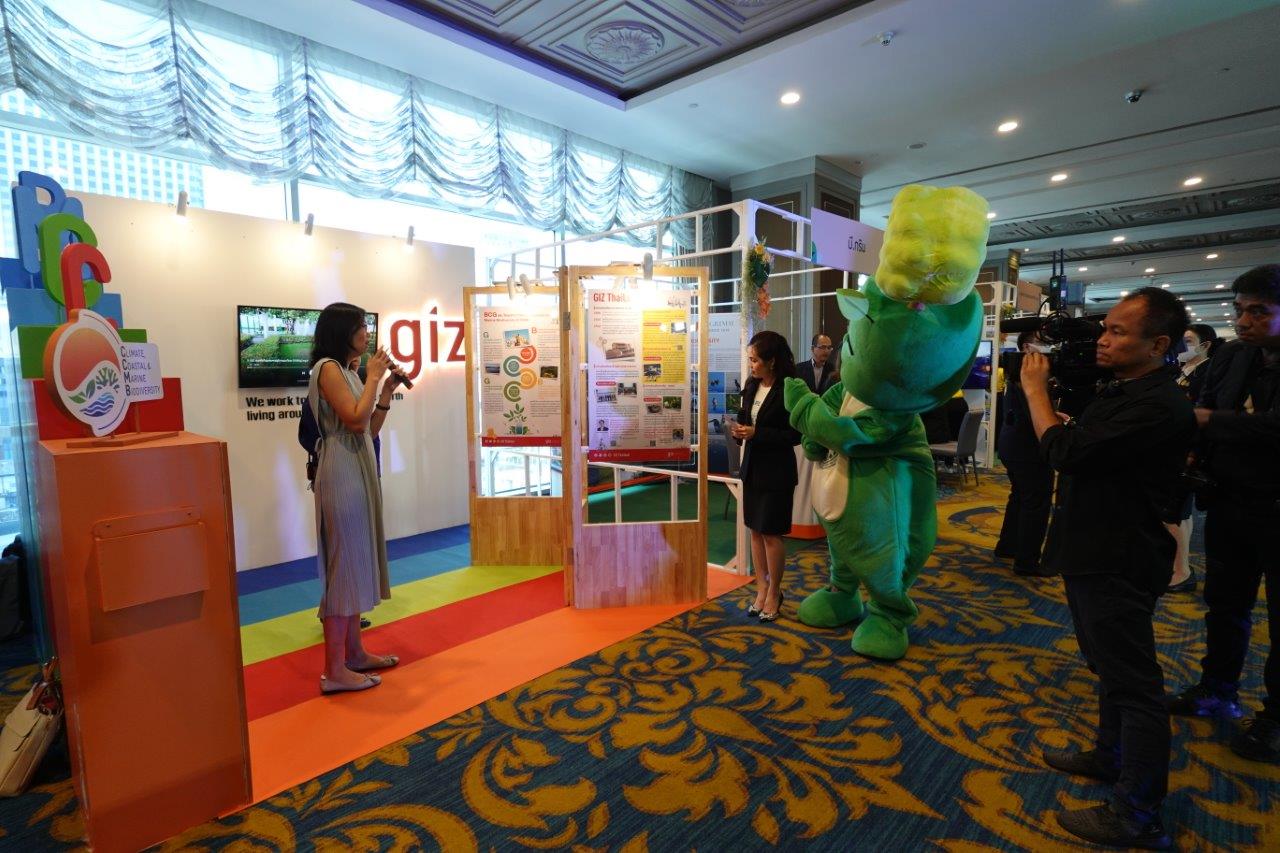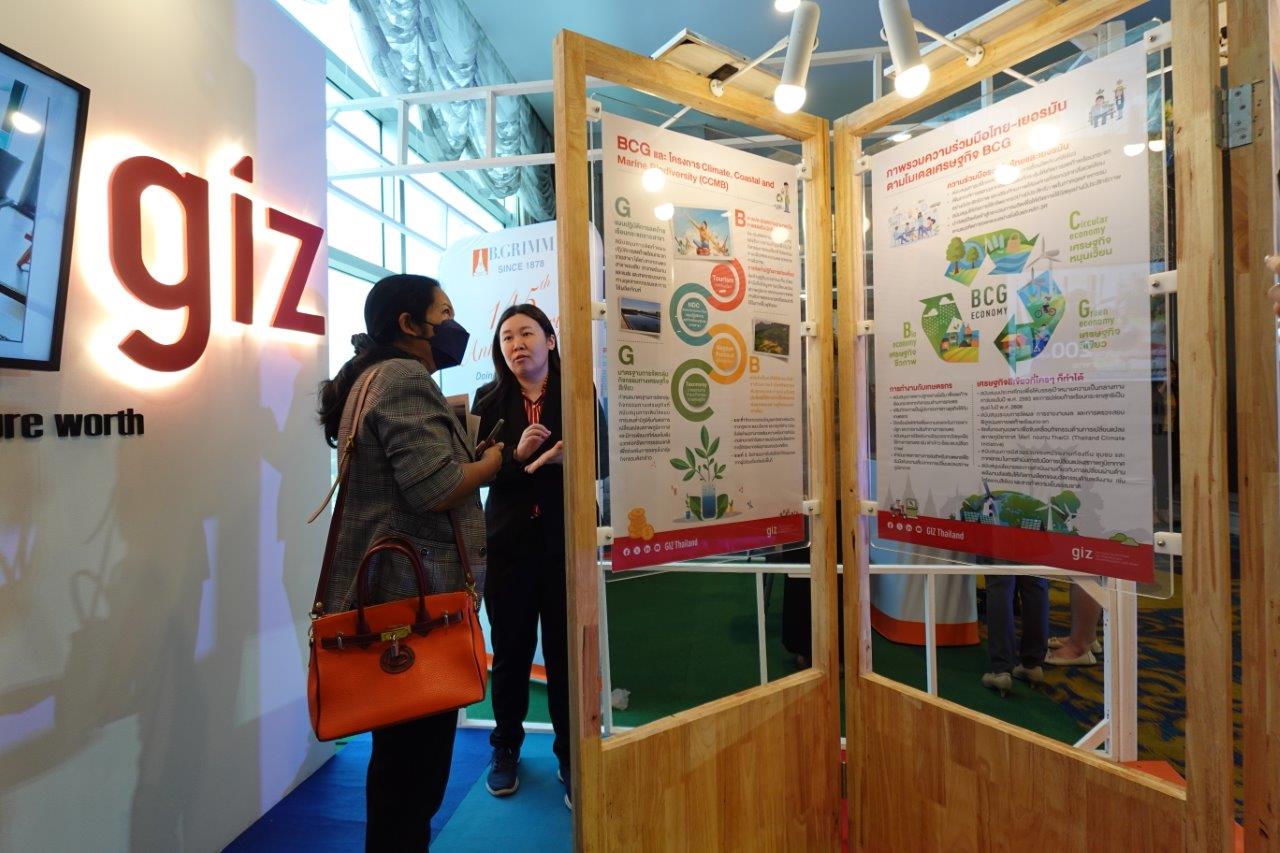GIZ supports Thailand in gearing its economy towards the BCG model
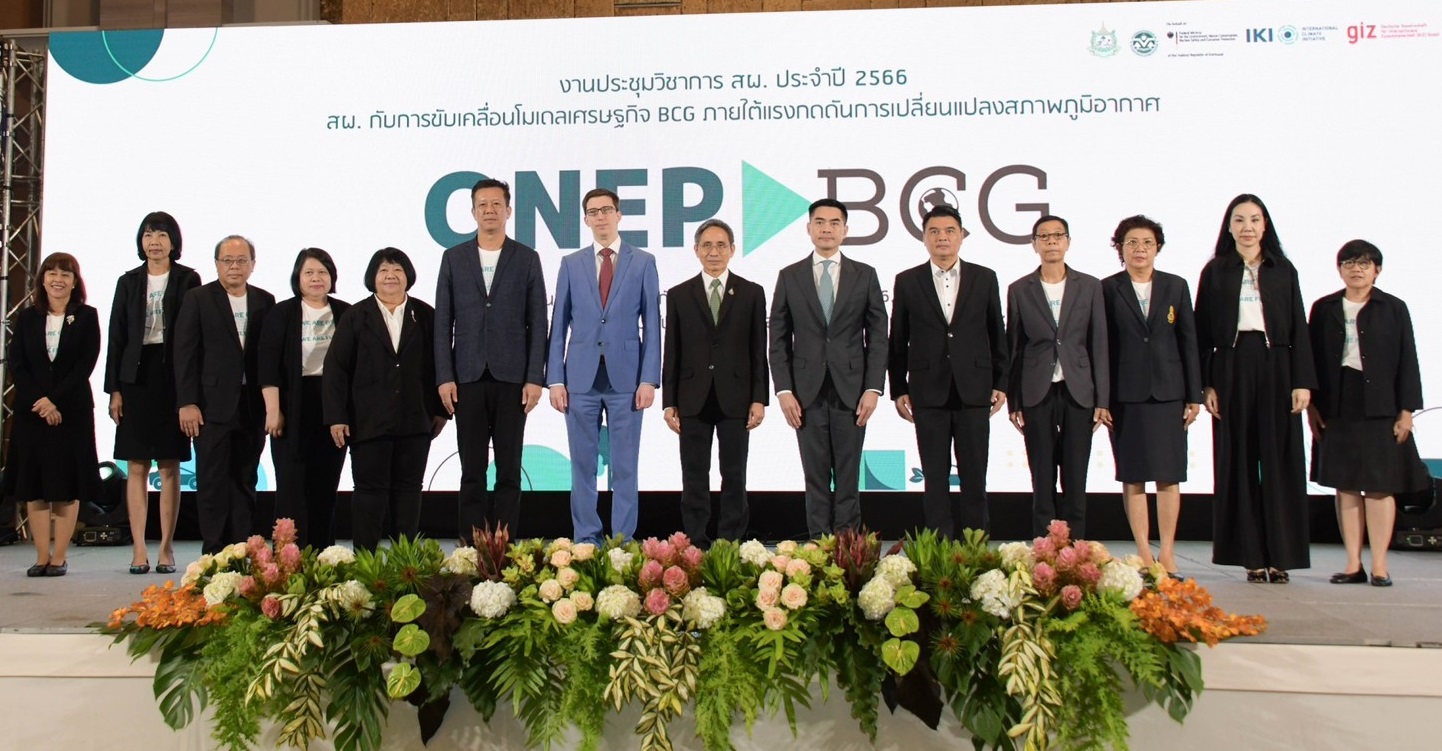
The vision outlined in the National 20-Year Strategy of Thailand becoming a “secure, sustainable, and prosperous nation, developed in accordance with the principles of a self-sufficient economy” led to the development of the Thailand Sustainable Development Strategy (2021-2027) centred on three key economic pillars: Bioeconomy, Circular Economy, and Green Economy, collectively known as the BCG Economic Model. This strategic plan was approved by the cabinet on 8 February 2022.
Recognising the importance of the issues, the Annual Academic Conference of the Office of Natural Resources and Environmental Policy and Planning (ONEP) this year highlighted the topic “ONEP and the Promotion of the BCG Economic Model under the Pressure of Climate Change”. The event took place on 14 September 2023, at The Berkeley Pratunam Hotel in Bangkok. Its purpose was to disseminate academic research findings and significant achievements of ONEP, as well as to showcase international collaboration in natural resource and environmental management. The conference was presided over by Mr. Thalerngsak Petchsuwan, Deputy Minister of Natural Resources and Environment, and featured a special address by Dr. Phirun Saiyasitpanich, Secretary-General of ONEP, who provided a comprehensive report on the conference’s background and objectives. Mr. Johannes Kerner, Economic Cooperation Advisor to the German Embassy in Thailand was also present and extended a warm welcome to participants.
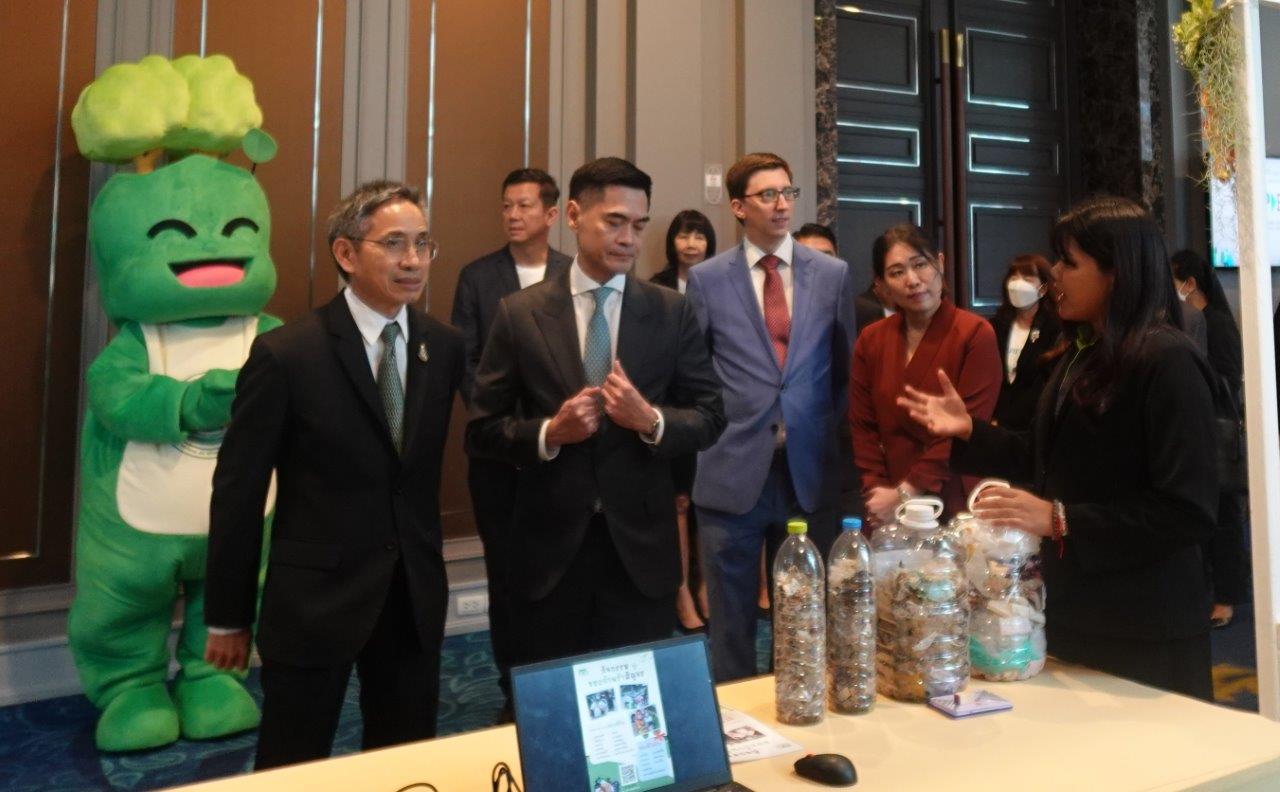
Numerous cooperative projects have been carried out during the 160 years of the relationship between the governments of Thailand and Germany. The cooperation between the two countries encompasses various levels, ranging from policy support to community-level initiatives. These include support for climate and biodiversity policy initiatives, transitioning to green energy, promoting green industries, adopting electric mobility, sustainable and low-carbon rice farming practices, greenhouse gas emissions reduction, and initiatives focused on sustainable consumption and production (SCP). Furthermore, efforts have been made to reduce plastic usage and food waste.
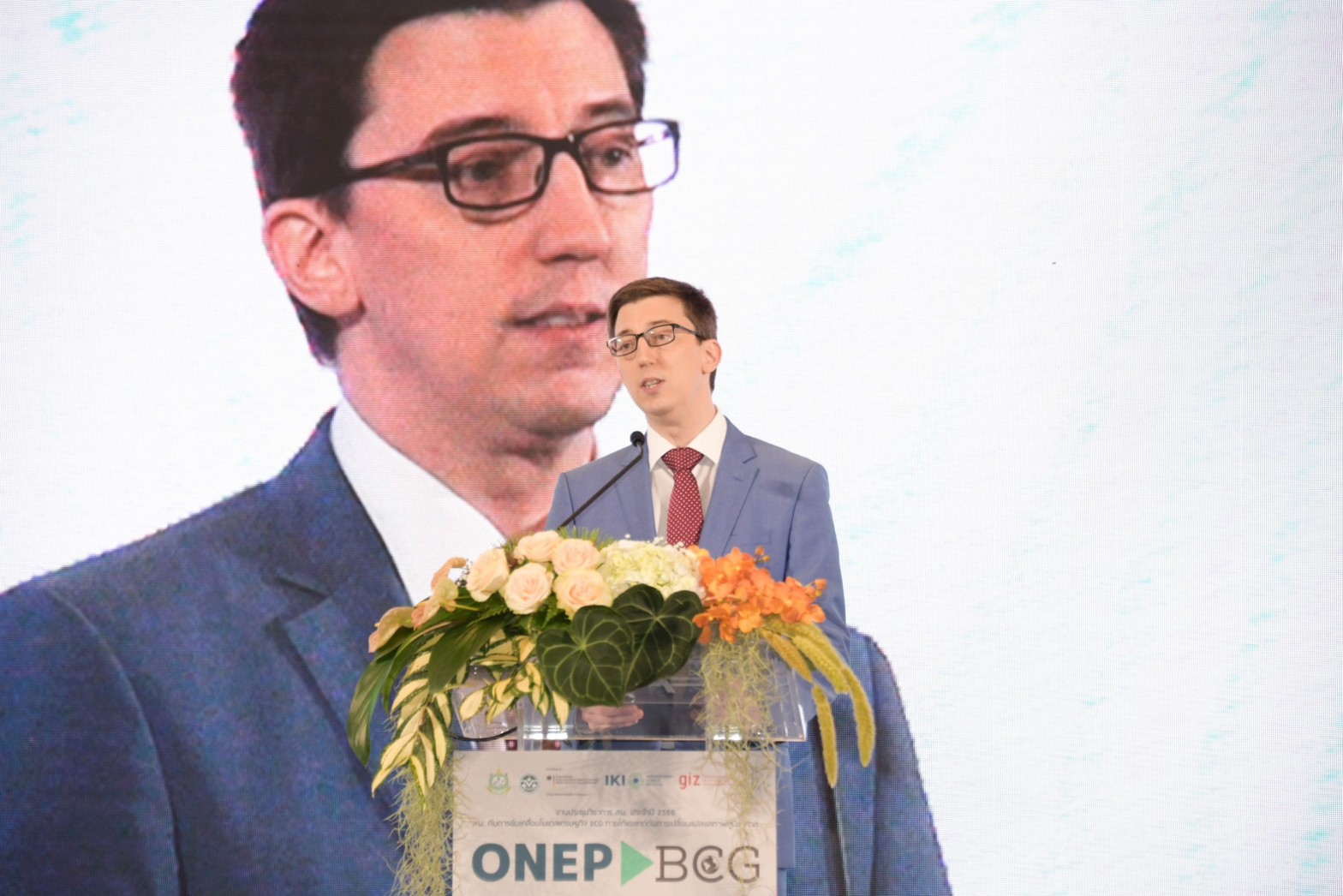
“Germany is delighted to support Thailand’s endeavour to raise its climate ambitions with a renewed pledge to achieve carbon neutrality in 2050 and net zero GHG emissions in 2065. Climate actions are an integral part of Thailand’s Green Economy and Green Growth Strategy,” said Mr. Johannes Kerner, Counsellor for Economic Affairs of German Embassy in Thailand.
Mr. Kai Hofmann, the Director of the Sustainable Consumption and Production Project at GIZ, presented work conducted under the project. Mr. Hofmann provided an example of comprehensive plastic management, spanning from policy recommendations to pioneering projects, focusing on plastic and single-use packaging reduction. This included creating design guidelines for plastic recycling, conducting training, and waste management initiatives in the tourism sector. Additionally, work in pilot areas such as Koh Tao in Surat Thani Province and in Trang Province aimed to transform these areas into smart cities in terms of plastic management. Feasibility studies were also conducted on the potential use of economic and financial measures to prevent and reduce plastic waste in Thailand.
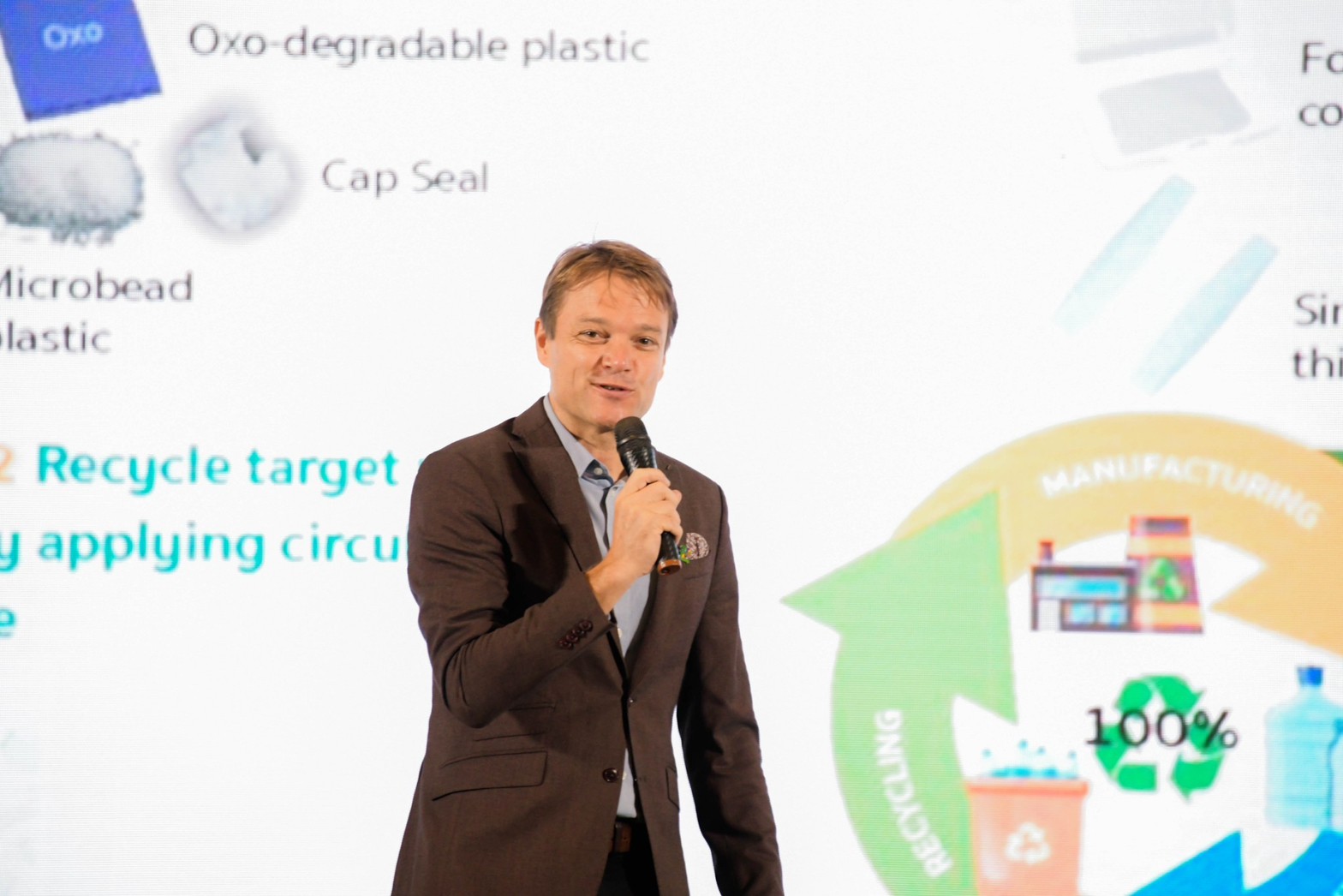
“If this is to be successful, it is crucial to integrate the work from the policy level down to the local level, with government leaders recognising its importance, and ensuring collaboration among relevant agencies, including government, private sector, civil society, and academia,” Mr. Hofmann stated.
The elements of the BCG model are also illustrated through the Climate, Coastal and Marine Biodiversity (CCMB) project, a 5-year initiative (2022-2027) carried out by GIZ in collaboration with relevant government agencies such as ONEP, the Department of Climate Change and Environment (DCCE), the Department of Marine and Coastal Resources (DMCR), and the Thai Ministry of Tourism and Sports. The aim is to elevate Thailand’s efforts to achieve its net-zero greenhouse gas emissions, climate resilience and biodiversity protection targets.
The journey towards sustainability is filled with challenges and it requires courage and substantial efforts to bring about change. Mr. Kerner concluded, “The German government is ready to provide support and collaborate with the Thai government to work towards lasting success and make the impossible possible.”
Mr. Kai Hofmann
Director of the Sustainable Consumption and Production (SCP) Project
Email:kai.hofmann1(at)giz.de
Dr. Angkana Chalermpong
Director of the Climate, Coastal and Marine Biodiversity (CCMB) Project
Email:angkana.chalermpong(at)giz.de
